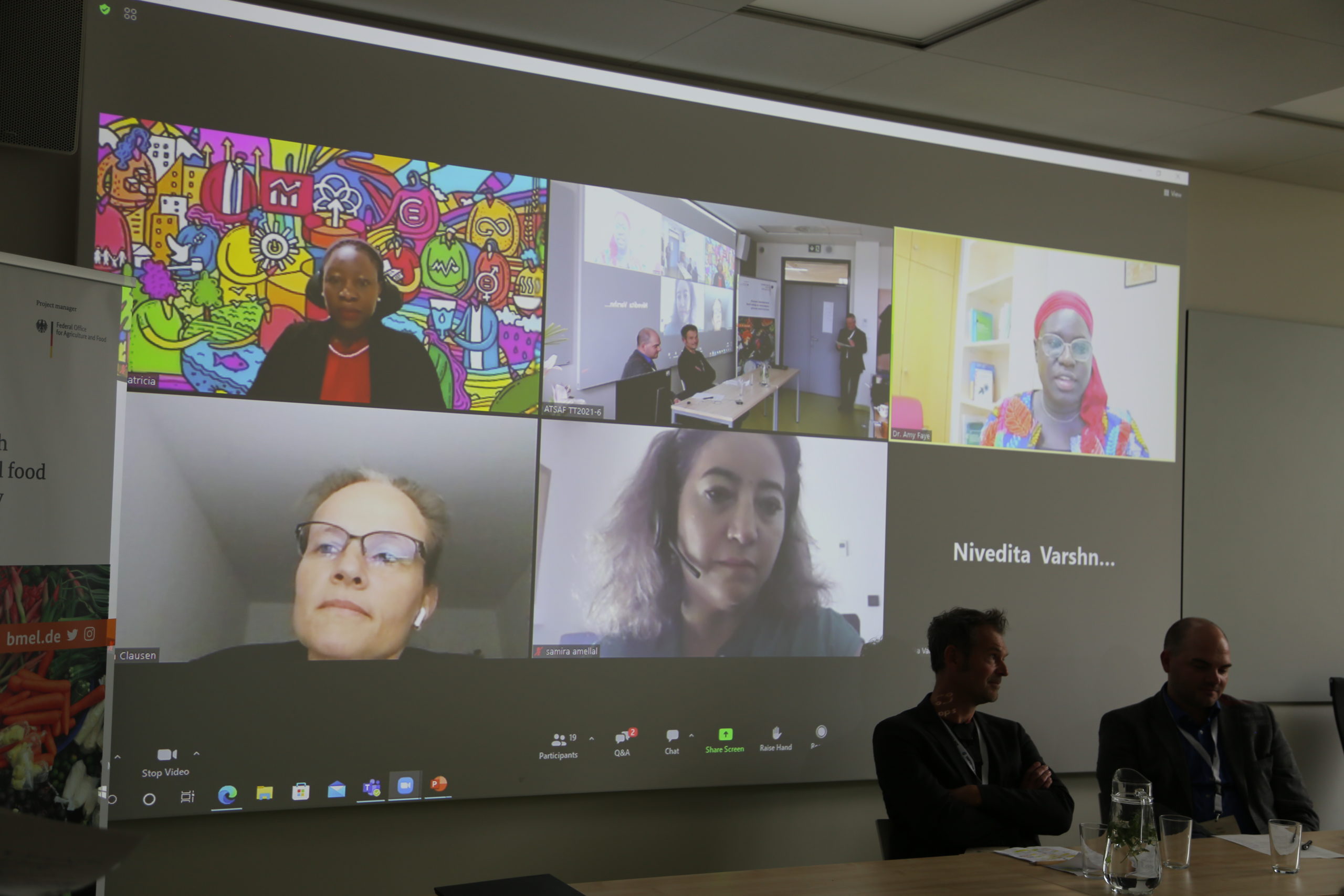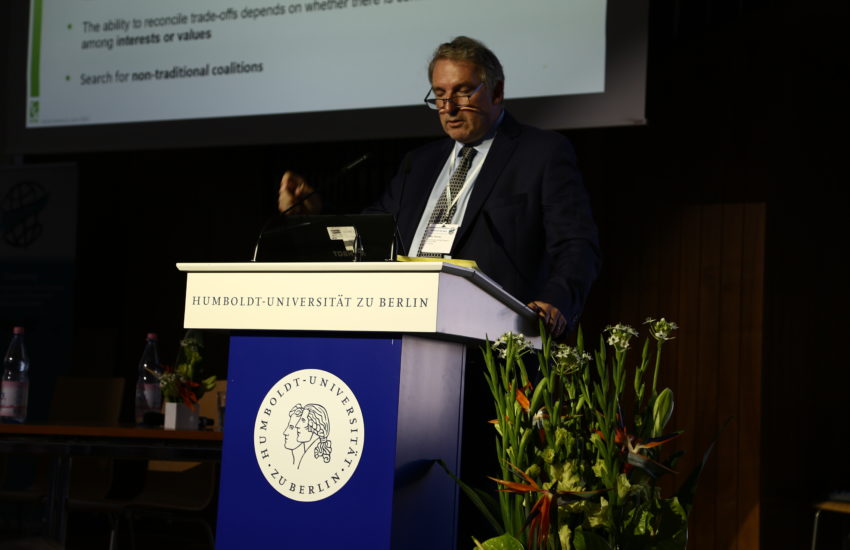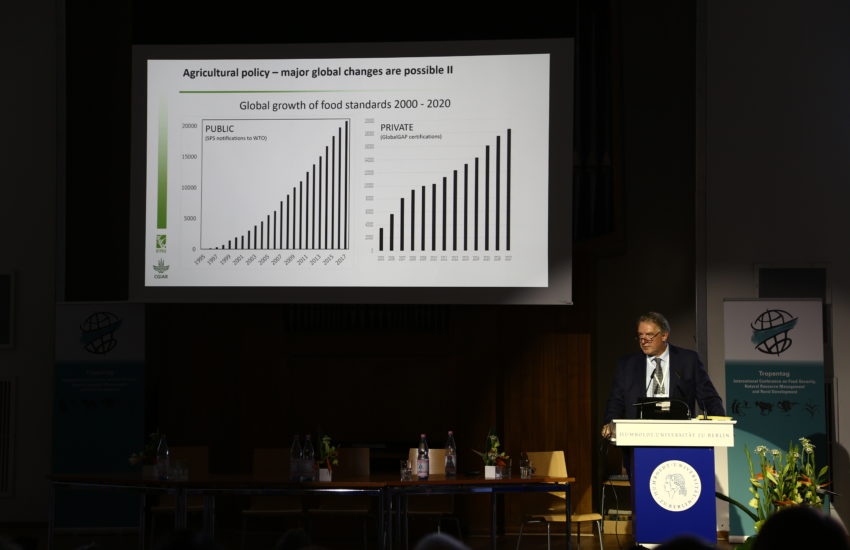Potentials and risks of agroecological farming for global food and nutrition security – a panel discussion
After some technical issues, Maja Clausen from the Federal Ministry of Food and Agriculture of Germany (BMEL) introduced us to the work of the BMEL and told us about their long term cooperation with FAO and other multilateral organizations, and their coordinations with other ministries like BMZ. Their key objectives in international research are the engagement in scientific exchange and progress on key topics, creation of longterm international partnerships and network, contribution to capacity building and development, and reaching the sustainable development goals and rights to food.
Nivedita Varshneva, the country director of Welthungerhilfe India, followed with a presentation about the situation in India. She pointed out that 32% of the children under the age of 5 are underweight, 35% of the children under the age of 5 are stunted, and 51% of women in the reproductive age group are anemic in India. She also made clear that climate change enhances these problems. In India 80% of the farmers are smallholders (130 Mil.), contributing to over 50% of the total farm output. The Eco food market is growing steadily but is still out of access for most Indians. The Welthungerhilfe is working on integrating natural farming techniques and strongly promoting modern farming techniques, they are promoting skill development and integrating market access.
Third and last speech was held by Samira Amellal, the Director General of CropLife Africa Middle East. CropLife focuses on the outcome of the food production system and call on the EU to consult more widely with African partners to better understand the potential impacts and solutions when developing its new policies. CropLife Africa is ready to act as a key partner of the EU in this process.
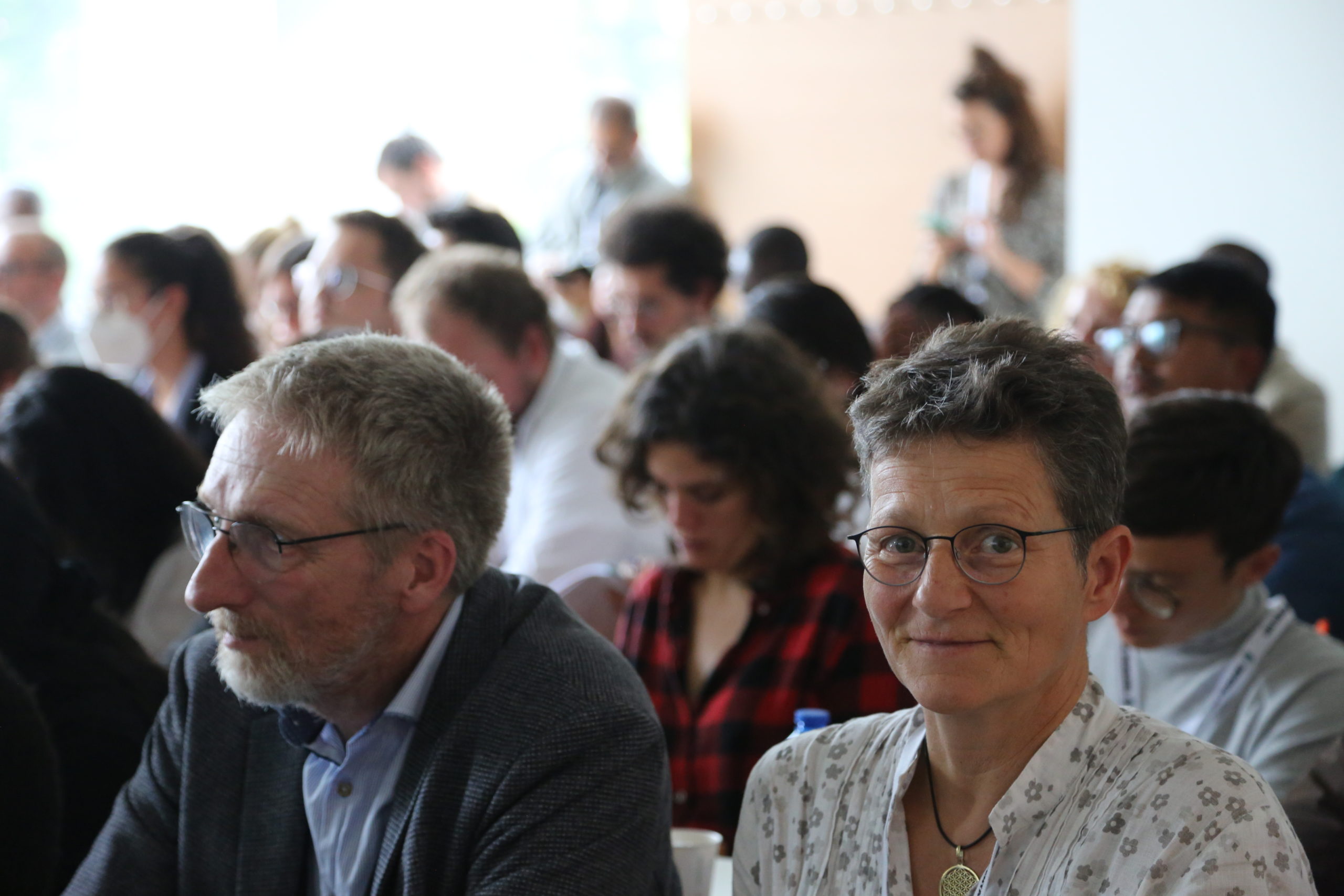
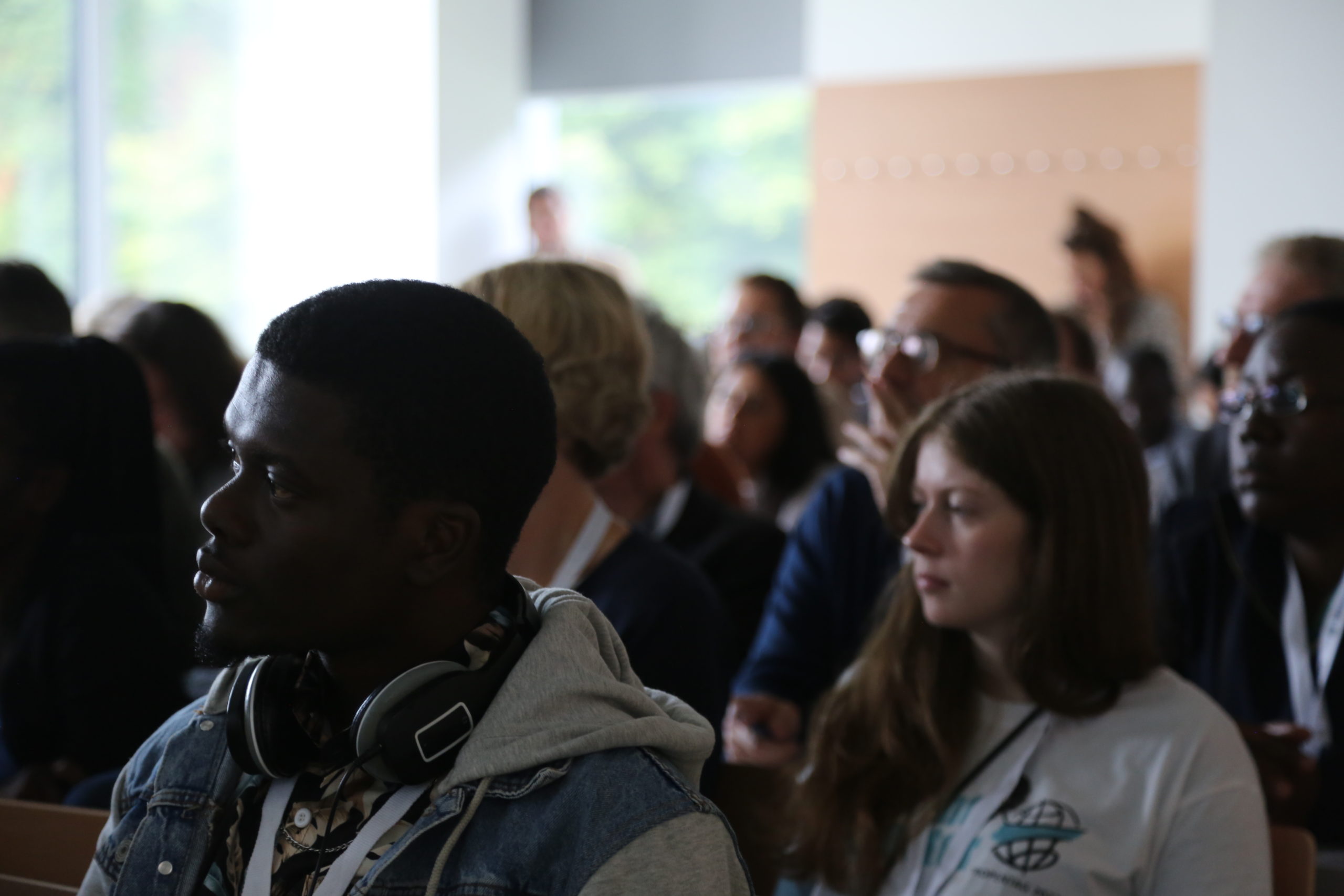
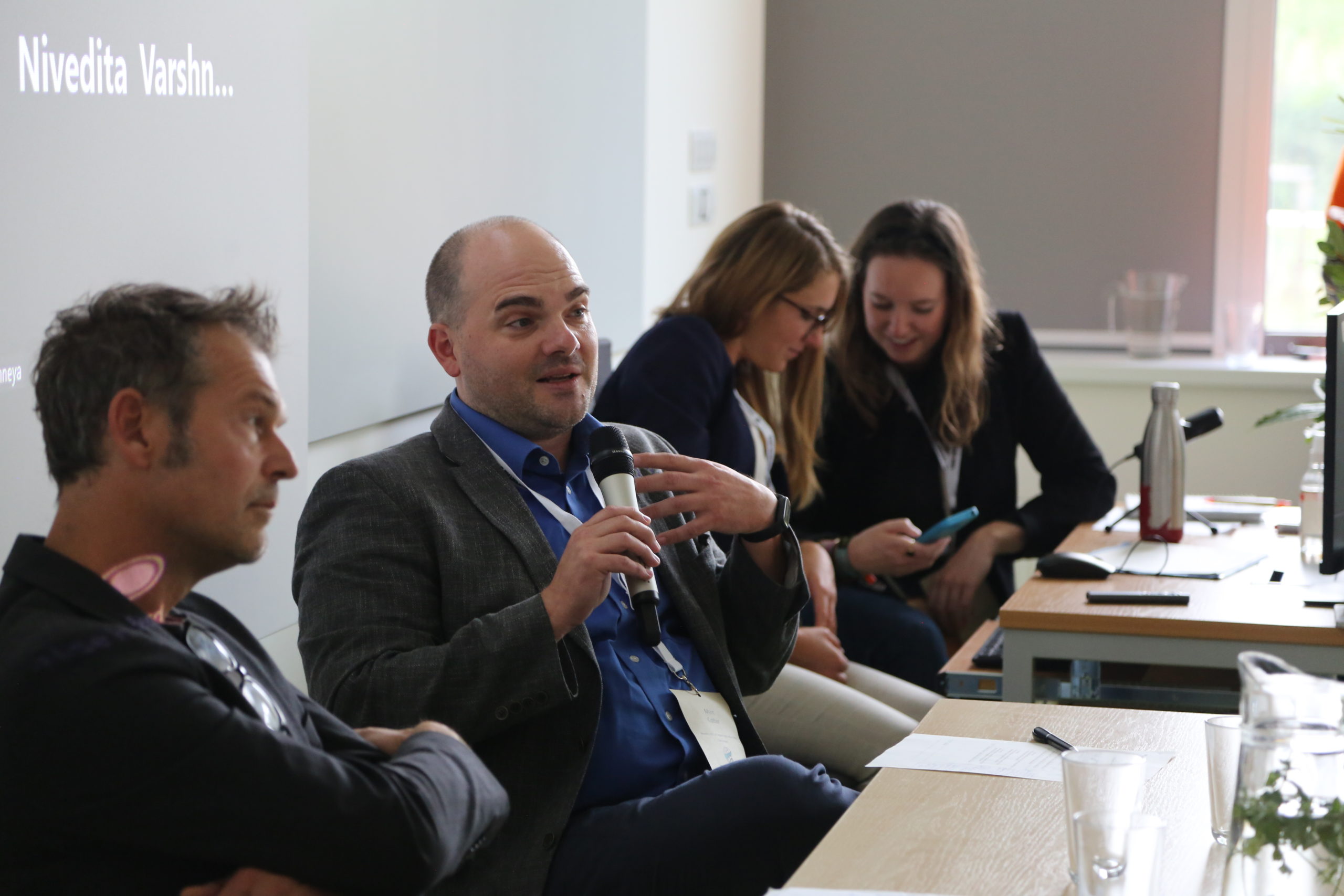
After these rich presentations, we listened to a panel discussion with Dr. Amy Faye, a post-doctoral researcher at the Center for Development Research (ZEF), Patricia Nanteza, a science writer at the International Institute of Tropical Agriculture (IITA), Marc Cotter from the Research Institution of Organic Agriculture (FiBL), and Stefan Sieber, the Head of Department of “Sustainable Land Use in Developing Countries” at Leibniz Centre for Agricultural Landscape Research (ZALF) and from Humboldt University in Berlin.
The first question to discuss was if it was actually realistic to produce ecologically for smallholders in Africa and what kind of risks there might be. Dr. Amy Faye had the chance to answer that question first and explained that changes need time, for example a tree does not grow immediately, changes can only have benefits in the long run after several years, but farmers often have needs in the short term. This means it is a tough decision to make and strategies by the governance schemes are needed that can help them cope during this waiting time . Another risk that she mentioned was that agroecological practices use a lot of labor, and any farming system that uses a lot of labor can have negative effects on the households (Will they have enough off-farm labor, that also contributes to the income?).
Marc Cotter adds that agroecology is strongly knowledge and work intensive. “We need to make it possible for farmers to get this knowledge and technologies. Value chains are needed for innovations and transitions today”.
For Patricia Nanteza who grew up in agriculture it is important to open up and look for new technologies, such as biotechnologies. She points out that the biggest advantage of agroecology for smallholders is that there are different varieties of crops and animals which enables farmers to improve their households’ nutrition. As many answers had been proposed until this moment, Stefan Sieber reaffirmed and made clear that knowledge and costs shouldn’t be underestimated in this transition.
Lastly the panelists were given the chance to point out the research gaps that they still see. For Dr. Amy Faye it is important that analysis doesn’t focus only on one specific item of the system, but should address the complexity of it.

